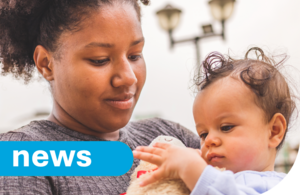Survey reveals high parental confidence in children's vaccines
UKHSA data shows 85% of parents are confident childhood vaccines are safe, effective and trustworthy.

New data published today by the UK Health Security Agency (UKHSA) shows continued high levels of confidence in the UK’s childhood vaccination programme.
The Childhood vaccines: parental attitudes survey 2025, which tracks parental attitudes towards childhood immunisations across the UK found that most parents believe that childhood vaccines are safe (85% up from 84% in 2023) that they trust them (84% up from 82% in 2024) and they work (87% compared to 89% in 2024).
Parents had a strong awareness of the risks posed by vaccine-preventable diseases, with over 90% (compared to 86% last year) agreeing that pneumonia, meningitis, hepatitis, polio and septicaemia were serious.
The survey also captured parental attitudes towards newer additions to the vaccination schedule. An important new pregnancy vaccine was introduced in September 2025 to help protect babies against Respiratory Syncytial Virus (RSV) and 85% of parents of babies and younger children also rated RSV infection as serious.
Healthcare professionals, in particular GPs, health visitors and nurses, continue to be the most trusted source of vaccine information. 76% of parents had seen or heard information about children’s vaccines in the past year, predominantly from trusted sources including healthcare professionals and official NHS websites. Only 7% ranked the internet and 3% social media in their top three most trusted sources.
Most parents (79%) had already decided that their baby would have all the vaccines offered before they spoke to a health professional. However, following a discussion with a health professional more than half of these parents (53%) said they felt even more confident about their decision, and of those who had decided not to vaccinate 15% changed their mind in favour of vaccination. This is positive news, given the declines in uptake over recent years, and highlights the vital role that knowledgeable health care professionals can play in reversing that decline.
Most parents (80%) reported that they had not seen or heard any concerning information about childhood vaccines, with 12% reporting mixed information and just 3% reporting hearing or seeing information that undermines vaccines. 86% of all parents felt they had received enough information to make an informed decision about vaccines offered to their children.
Dr Julie Yates, UK Health Security Agency’s Deputy Director for Immunisation Programmes:
The findings from our latest survey are encouraging and show that most parents across the UK continue to trust the NHS childhood vaccination programme and understand its importance in protecting our children. It’s particularly reassuring that parents identify healthcare professionals and NHS resources as their most trusted sources of vaccine information. Having questions about vaccines is a normal part of the parental journey. Our survey highlights the crucial role that healthcare professionals play in providing parents with accurate information about vaccines and the serious diseases they protect against, and in building confidence in these programmes. We urge parents with any concerns to speak with a trusted NHS professional such as their GP, Health Visitor, Midwife or Practice Nurse.
However, childhood vaccination rates are still not where we want them to be, and we cannot be complacent. We know that many parents and carers have busy lifestyles, and that finding time to ensure your child attends their appointment can be a challenge. That is why we are working with the NHS and partners to improve access to childhood vaccination services. Getting our rates up to the 95% WHO target required to eliminate these diseases will take sustained effort and a long-term commitment across the public health system, and we are working together and with families and communities to do this.
Dr Amanda Doyle, National Director for Primary Care and Community Services at NHS England, said:
Today’s findings reflect the essential work being done by GPs, health visitors and nurses to reliably inform parents about childhood vaccinations, with more than half of parents saying they felt more confident in getting their children vaccinated after speaking to a healthcare professional, with vaccination one of the best ways to boost public health and prevent illnesses.
Our childhood immunisation programmes are available for free on the NHS as we want to make sure as many children as possible are protected against becoming seriously unwell, and NHS England continues to work closely with vaccination teams, schools and GP services to make it as easy as possible for young people to get their jabs.
Our 10 Year Health Plan aims to build an NHS fit for the future which includes improving access to vaccinations to help put people in control of their own health and I would encourage all parents to act on invites or check vaccination records if they think they may have missed their child’s vaccination.